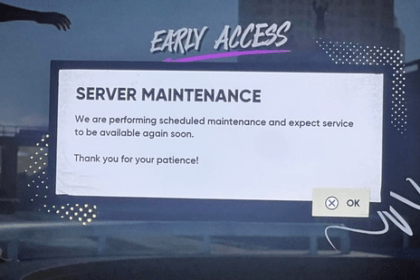Teen Confronts Rapist in Court, Reclaims His Voice and Story
In a powerful display of courage, 19-year-old Devin O’Donnell publicly confronted the man who sexually assaulted him when he was just 11 years old. During a recent court hearing at Dublin’s Central Criminal Court, O’Donnell chose to waive his right to anonymity, allowing the name of his attacker, Joseph Campbell, 63, to be publicly disclosed. This decision marks a significant moment in O’Donnell’s journey toward healing and empowerment.
A Brave Stand Against Silence
O’Donnell’s emotional testimony was a poignant reminder of the long-lasting impact of sexual abuse. He stated, “I will not carry the guilt anymore,” emphasizing his determination to reclaim his narrative. This act of defiance against his abuser is not just a personal victory; it resonates with many survivors who struggle with the stigma and shame often associated with such traumatic experiences.
In his victim impact statement, O’Donnell articulated the profound effects of the assault on his life. “You didn’t just hurt me in that moment; you changed how I experienced the world,” he said, highlighting the psychological scars that linger long after the physical act. His words reflect a broader truth about the nature of trauma, which can alter a person’s perception of safety and self-worth.
The Context of the Crime
Joseph Campbell, a family member and father of O’Donnell’s stepmother, was found guilty of what is legally defined as section 4 rape-specifically, anal rape-committed in October 2017. The court also took into account additional charges of sexual assault that occurred in December 2021. Despite the jury’s verdict, Campbell has maintained his innocence, a stance that adds another layer of complexity to the case.
The sentencing, which resulted in an eight-and-a-half-year prison term for Campbell, was presided over by Ms. Justice Mary Ellen Ring. She noted the “resilience” displayed by O’Donnell throughout his life, acknowledging the challenges he has faced as a survivor of such a heinous crime. Justice Ring’s remarks serve as a reminder of the societal responsibility to support victims and foster an environment where they can speak out without fear of judgment.
The Impact of Abuse on Victims
O’Donnell’s testimony sheds light on the emotional turmoil that often accompanies sexual abuse. He described how the experience planted “silence” within him, leading to feelings of shame that overshadowed his voice for years. “I’m not that scared little child anymore,” he declared, signaling a transformative shift in his mindset. This statement is emblematic of the healing journey many survivors undertake, moving from victimhood to empowerment.
The psychological ramifications of such trauma can be profound. O’Donnell expressed feelings of confusion, fear, and heartbreak that have lingered long after the abuse. “What happened to me as a child has never left me,” he stated, encapsulating the enduring nature of trauma. His reflections resonate with research indicating that childhood sexual abuse can lead to long-term mental health issues, including anxiety, depression, and post-traumatic stress disorder (PTSD).
The Role of the Justice System
Justice Ring’s sentencing remarks highlighted the breach of trust inherent in Campbell’s actions, particularly given his role as a family figure. “No child should have to have these experiences,” she asserted, emphasizing the moral obligation of adults to protect children from harm. The court’s decision to impose a significant sentence reflects a growing recognition of the need for accountability in cases of sexual violence.
However, the case also raises questions about the adequacy of the justice system in addressing the needs of survivors. While O’Donnell’s bravery in speaking out is commendable, many victims remain silent due to fear of retribution or disbelief. The societal stigma surrounding sexual abuse often complicates the healing process, making it imperative for communities to foster supportive environments for survivors.
A Message of Hope and Resilience
In her closing remarks, Justice Ring expressed hope that O’Donnell would find happiness and fulfillment in his future, stating, “While this abuse has marked him, it should not define him.” This sentiment underscores the importance of resilience in the face of adversity. O’Donnell’s journey serves as an inspiration to others who may be grappling with similar experiences, illustrating that healing is possible.
O’Donnell’s decision to speak out publicly is a testament to his strength and determination. By reclaiming his voice, he not only confronts his past but also paves the way for others to do the same. His story is a reminder that survivors can emerge from the shadows of their trauma, reclaiming their narratives and advocating for change.
Conclusion
Devin O’Donnell’s courageous stand in court is a powerful reminder of the resilience of the human spirit. By confronting his abuser and sharing his story, he not only seeks justice for himself but also raises awareness about the long-lasting effects of sexual abuse. As society continues to grapple with these issues, O’Donnell’s journey serves as a beacon of hope for survivors everywhere, encouraging them to reclaim their voices and stories. The path to healing may be fraught with challenges, but as O’Donnell has shown, it is a journey worth undertaking.











